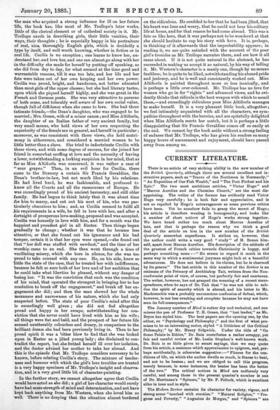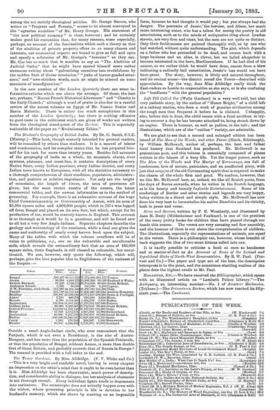The Modern Review sustains its character for variety, vigour, and
strong sense "touched with emotion." "Natural Religion," "Pro- gress and Poverty," "Augustus de Morgan," and " Spinoza " are among the not strictly theological articles. Mr. George Sarson, who writes on " Progress and Poverty," seems to be almost converted to the "agrarian socialism " of Mr. Henry George. His statement of "the new political economy" is clear, however; and he certainly makes good his contention that, for many reasons, more especially, perhaps, on account of the fascinations which such a theory as that of the abolition of private property offers to so many classes and interests, oar economical experts are boned to give as full and open and speedy a refutation of Mr. George's " heresies " as they can. Mr. Coe has so much that is sensible to say on "The Abolition of Judicial Oaths," that he might have spared himself some rather strenuous writing about "galvanising ourselves into truthfulness by the sudden flash of divine revelation," "jerks of horror-goaded utter- ance," and "awe-stricken words, such as might be uttered on some mountain of transfiguration."



































 Previous page
Previous page